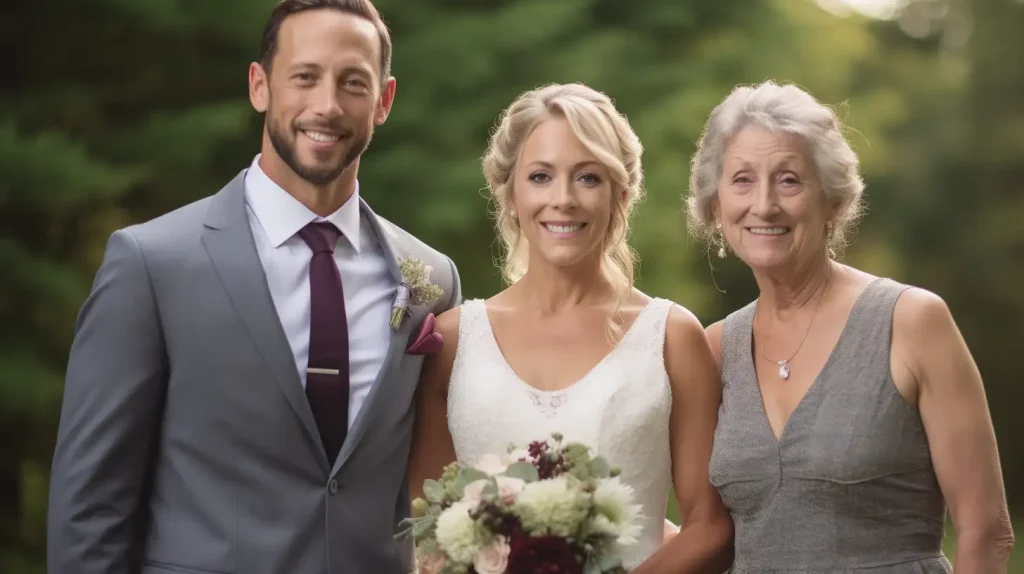Table of Contents
The age at which parents stop paying for weddings can vary greatly depending on cultural norms, financial circumstances, and individual family dynamics. While there is no specific age universally agreed upon, it is increasingly common for couples to take on the financial responsibility of their own weddings, often after they have achieved financial independence in their early to mid-20s or even later.
Have you ever found yourself wondering who should bear the cost of your wedding day? It’s a topic that has become quite complex in modern times. Centuries ago, the custom was clear-cut: the bride’s parents shouldered most of the expense. Today, it’s a whole different ball game. Things have evolved, and it’s not unusual for couples themselves to pay for their nuptials.
Exploring Cultural Norms
As we delve deeper into this fascinating topic, understanding the cultural norms that shape wedding expenditures across the globe becomes an exciting journey.
- Carter, Lisa (Author)
- English (Publication Language)
- 107 Pages - 04/06/2024 (Publication Date) - Independently published (Publisher)
European Norms
In many European cultures, it was traditionally expected that the bride’s family would bear a significant portion of the wedding expenses. However, modern European weddings often see a shift from this tradition, with couples and their families choosing to split costs equally or the couple themselves bearing the entire cost.
Asian Customs
In Asian societies like India, it’s often expected that the bride’s family will cover most wedding costs. However, there is an ongoing evolution with younger generations challenging these norms. More and more, modern Indian couples are opting to share the costs, breaking away from tradition. In contrast, Chinese tradition places the responsibility on the groom’s family to cover the wedding costs and provide a home for the new couple.
African Traditions
African traditions vary vastly across the continent. In many parts, like Nigeria, the bride’s family traditionally bears the brunt of the costs. Yet in other parts, like South Africa, the couple’s families usually split the wedding costs.
American Trends
In the U.S., traditional etiquette suggests that the bride’s family pays for the wedding while the groom’s family covers the honeymoon. But this has significantly evolved, and it’s becoming more common for couples to pay for their own weddings or for expenses to be divided among the couple and both sets of parents.

The Evolution of Wedding Expenditure
Unraveling the evolution of wedding expenditures over the last few decades provides us with a fascinating look at how societal, economic, and generational factors have influenced these trends.
The Traditional Wedding Expenditure Model
Let’s take a step back in time. Traditionally, the bride’s family was primarily responsible for financing the wedding. This practice was largely due to the concept of dowry and the idea that the bride’s family was essentially ‘giving away’ their daughter.
The Generational Shift
As we moved into the late 20th and early 21st century, things began to change. Several factors contributed to this shift:
Later Marriages
Modern couples tend to tie the knot later than previous generations. The reasons behind this trend are manifold: higher education, career priorities, changing societal norms, and the desire for more personal development before marriage.
Financial Independence
With the trend of later marriages, couples often enter wedlock with a higher level of financial independence. They’ve had time to build careers and establish their financial footing, which often results in a preference or even an expectation to contribute to their own wedding costs.
The Economic Aspect
The state of the economy also plays a significant role in this evolution. Economic downturns or periods of financial instability often force couples and their families to reassess how much they’re willing or able to spend on a wedding.
Modern Day Wedding Expenditure
Fast forward to today, and you’ll see a wide range of wedding financing models. Some couples split the costs with their parents, others finance the entire event themselves, and some still follow the traditional model.
The Role of Age in Wedding Expenditure
Understanding the role of age in wedding expenditure can help couples and their families navigate this often complex issue. Let’s break it down into several key phases in life:
The Early Twenties
When you’re in your early twenties, you may still be navigating the transition from college to the workforce. During this phase, the likelihood of parents contributing to wedding costs is often higher.
- Dependency vs. Independence: Fresh out of college, your financial independence might not be fully established yet, making it more challenging to bear the cost of a wedding.
- Navigating New Expenses: With student loans, starting salaries, and new expenses such as rent or car payments, a wedding might stretch your budget thin.
The Late Twenties to Early Thirties
As you enter your late twenties and early thirties, you’re likely more settled in your career, leading to greater financial independence. This period often brings a shift in wedding expenditure patterns.
- Increased Financial Stability: With a more stable income, you might feel more equipped to take on the expenses of a wedding.
- Shifting Expectations: As you grow older, societal and familial expectations may shift, with a greater assumption of financial responsibility.
The Forties and Beyond
Marrying in your forties or later often means a different approach to financing a wedding. At this stage, you’re more likely to have established financial security, enabling you to handle wedding costs independently.
- Financial Confidence: With years of work experience, you’re likely to have more savings and financial resources.
- Personalized Approach: Marrying at an older age often means wanting a celebration that’s tailored to your tastes, which can be easier to achieve when you’re managing the budget.

The Expectation vs. Reality
When it comes to wedding costs, misconceptions often abound, fueled by glossy social media posts and age-old traditions. Let’s dissect the differences between expectation and reality:
The Illusion of Social Media
Social media platforms have become a window to extravagant weddings, leading many to assume these events are wholly funded by parents. The images of lavish celebrations often don’t reveal the real story behind the financial side of the events.
- Perceived vs. Actual Affordability: While these weddings may look grand and expensive, they do not represent every wedding, nor do they accurately depict who is footing the bill.
Traditional Expectations
Long-standing traditions often shape expectations about wedding financing. The notion that parents, especially those of the bride, should bear the costs is deeply ingrained in many cultures.
- The Dowry System: Many cultures have traditionally followed the dowry system or bride’s family paying for the wedding, which can perpetuate the expectation that parents will cover the costs.
The Reality: A Paradigm Shift
Contrary to these expectations, studies and surveys indicate a shift towards couples taking financial responsibility for their weddings. The reality today is far more varied than traditional norms or social media might suggest.
- A Collaborative Approach: Increasingly, couples and their parents are opting to share the wedding costs. It’s a team effort, fostering a sense of shared responsibility and engagement in the process.
- Couples Taking Charge: It’s becoming more common for couples to finance their own weddings, reflecting their financial independence and personal desire to shape their celebrations according to their preferences.
Gender Roles in Wedding Expenses
In discussing the evolution of wedding expenses, the conversation around gender roles is inevitable. From traditional expectations to contemporary trends, let’s examine how the landscape is changing.
The Traditional Picture
Traditionally, the bride’s family was expected to bear the bulk of wedding costs. This norm originated from various socio-cultural factors and was prevalent across numerous cultures:
- Historical Context: In many societies, the idea that the bride’s family was ‘giving away’ their daughter led to the expectation that they would also finance the wedding.
The Changing Tide
However, the 21st century has seen a significant shift in these norms. There’s been a gradual movement away from these expectations, reflecting broader changes in societal attitudes towards gender roles:
- The Rise of Equality: With the shift towards more egalitarian views on relationships and finances, it’s becoming increasingly common for the groom’s family to share the costs.
- Breaking Stereotypes: Beyond just the parents, the idea that the couple themselves handle the wedding expenses is gaining ground, further challenging traditional gender roles.
The Modern Approach
In today’s world, who pays for the wedding isn’t dictated by gender, but by a myriad of factors like financial independence, cultural norms, personal preference, and economic conditions:
- Equal Partners: Many modern couples approach their wedding as equal partners, splitting the costs down the middle. It’s not about the bride or groom side footing the bill, but about the couple starting their journey together on an equal footing.
- The Financial Equation: The couple’s financial situation significantly influences this. For couples who’ve had time to establish their careers and build savings, self-financing becomes a viable option.

When Parents Choose to Contribute
In the contemporary era of increased autonomy, parents still occasionally opt to help financially with their child’s wedding. Let’s discuss the various reasons behind this decision and the importance of striking the right balance:
Tradition Lives On
In many cases, parents contribute due to deeply ingrained traditions. Regardless of a couple’s financial status, some parents find it important to maintain the customary role of supporting the wedding:
- Cultural Heritage: For some, contributing to the wedding expenses is a way of honoring their cultural heritage and customs.
- A Generational Perspective: Parents who had their own weddings financed by their parents might feel a sense of obligation or desire to continue the tradition.
A Celebration of Joy
Sometimes, parents choose to contribute not out of obligation, but out of joy and excitement for their child’s milestone:
- A Gift of Love: Helping finance the wedding can be seen as a heartfelt gift to the couple, expressing their happiness and support.
- Participation and Involvement: It’s also a way for parents to feel more involved in the process and celebration of their child’s big day.
Balancing Tradition and Modernity
While parental contributions can be a wonderful gesture, it’s essential to balance tradition and the couple’s desires:
- Respecting the Couple’s Wishes: Parents should be aware of the couple’s preferences, making sure their financial involvement aligns with what the couple envisions for their wedding.
- Navigating Financial Realities: The financial capacity of the parents is also a crucial factor. It’s important to ensure that their generosity doesn’t stretch their own finances too thin.
Open Conversations: The Importance of Communication
Addressing wedding expenses can sometimes feel like navigating a minefield, with potential misunderstandings and misconceptions at every turn. Here, communication becomes a vital tool for clarity and peace of mind:
The Awkwardness Factor
Discussing finances, particularly with parents or in-laws, can often feel uncomfortable or even taboo. However, avoiding these conversations may lead to more stress and confusion:
- Tackling Taboos: In many cultures, talking openly about money is considered inappropriate or disrespectful. However, in the context of wedding planning, open dialogue can be a necessity to avoid future misunderstandings.
- Setting the Stage: A respectful and thoughtful approach can help alleviate the awkwardness. Remember, it’s not a negotiation but a conversation about shared expectations and mutual comfort levels.
The Clarity of Expectations
Open and honest conversations provide clarity, allowing everyone involved to plan and contribute accordingly:
- Aligning Expectations: It’s crucial to understand who is expected to pay for what. Will the parents contribute, and if so, how much? If the couple is paying, what’s their budget?
- Financial Planning: With a clear understanding of the budget, all parties can plan better. This could influence decisions about the wedding’s scale, venue, guest list, and more.
The Power of Open Dialogue
When handled with care and respect, these conversations can lead to a smoother, more enjoyable wedding planning process:
- Preventing Misunderstandings: By talking openly, you can prevent assumptions or miscommunications that could lead to friction.
- Creating a Shared Vision: Open communication can ensure everyone is on the same page, helping to create a shared vision for the wedding that aligns with everyone’s expectations and financial comfort zones.
Planning a Wedding on Your Own
Venturing into the realm of self-financing your wedding might seem daunting, but with thoughtful planning and smart decision-making, it’s entirely achievable. Here are some practical tips and resources to guide you on your journey:
The Power of Budgeting
Budgeting is the cornerstone of any successful self-funded wedding. It provides a clear financial roadmap and helps you make informed decisions:
- Setting the Budget: The first step is determining what you can comfortably afford to spend on your wedding. Consider your savings, your monthly income, and any other financial commitments you have.
- Allocation: Once you’ve set the budget, allocate funds to different elements of the wedding. This might include venue hire, catering, attire, entertainment, and more. Remember, flexibility is key here. You might need to adjust as you start getting quotes and finalizing vendors.
Resourcefulness and Creativity
Taking the reins of your wedding finances also invites creativity. It’s your chance to personalize your wedding and make choices that align with your priorities as a couple:
- Prioritize: Decide what aspects of your wedding are most important to you. If you’re foodies, you might choose to allocate a larger portion of your budget to an exquisite menu and save on other elements.
- DIY Elements: Consider where you might be able to save by doing it yourself. This could include making your own decorations, invitations, or even creating a playlist instead of hiring a DJ.
Conclusion
So, at what age do parents stop paying for weddings? As we’ve seen, there’s no definitive answer. It varies, depending on cultural norms, personal financial situations, and individual choices. What matters is that the decision works for you and aligns with your unique circumstances.
In the end, remember that a wedding is about more than just one day—it’s about the life you’re building together. The costs associated with this single event should be viewed through the lens of your broader financial health and future goals. It’s about the joy, the commitment, and the journey you’re embarking on together. And no matter who foots the bill, those are the moments that will truly last a lifetime.
FAQs
Q: What if the couple wants their parents to contribute financially?
A: It’s perfectly acceptable for a couple to express their desire for financial assistance from their parents. However, it’s essential to approach the conversation with sensitivity and respect. Couples should have an open and honest discussion with their parents, expressing their needs and desires, while also understanding and considering their parents’ financial capabilities and personal circumstances. It’s crucial to approach these conversations with empathy and be prepared for the possibility that parents may not be able or willing to contribute financially.
Q: Should couples feel obligated to have their parents pay for their wedding?
A: No, couples should not feel obligated to have their parents pay for their wedding. Each couple’s financial situation and preferences are unique, and they should make decisions based on what feels right for them. It’s essential to prioritize open communication, understanding, and mutual respect when discussing financial matters with parents. Ultimately, the decision on who pays for the wedding should be a collaborative and voluntary agreement between all parties involved.
Q: Are there alternative ways to fund a wedding without parental support?
A: Yes, there are alternative ways to fund a wedding without relying on parental support. Couples can explore various options, such as saving money over time, budgeting carefully, seeking financial assistance from other family members or close friends, or even considering more cost-effective wedding options. Additionally, some couples choose to prioritize their own financial independence and opt for smaller, intimate weddings that align with their budget. It’s important to be creative, resourceful, and realistic when planning a wedding within one’s means.
Q: How can couples navigate the financial aspect of weddings with their parents?
A: Navigating the financial aspect of weddings with parents requires open and honest communication. Couples should have candid conversations with their parents early on to understand each other’s expectations, financial capabilities, and any cultural or familial traditions that may come into play. It’s crucial to approach these discussions with empathy, respect, and a willingness to find common ground. Couples can also consider seeking the guidance of a wedding planner or financial advisor to help facilitate discussions and create a realistic wedding budget.
Q: What if parents insist on paying for the wedding, but the couple wants to pay for it themselves?
A: It’s not uncommon for parents to express their desire to contribute financially to their child’s wedding. However, if the couple wishes to take on the responsibility themselves, they should have an open and honest conversation with their parents, expressing their gratitude for the offer while respectfully declining. It’s important to communicate their desire for financial independence and the opportunity to create a wedding that aligns with their own vision and values.
Q: Is it appropriate for parents to set conditions or expectations when offering to pay for a wedding?
A: Parents offering to pay for a wedding may sometimes set conditions or expectations, especially if they have specific traditions or cultural norms they want to uphold. While it’s essential to respect their wishes, it’s equally important for the couple to express their own desires and boundaries. A constructive approach would involve discussing these conditions openly and finding compromises that satisfy both parties. Effective communication and understanding each other’s perspectives can lead to finding common ground and ensuring a meaningful and inclusive celebration.
Q: Should parents be involved in the wedding planning process if they’re not contributing financially?
A: The level of parental involvement in the wedding planning process can vary depending on individual preferences and family dynamics. While financial contributions may influence the extent of involvement, it’s ultimately up to the couple to decide how much input they want from their parents. Open and clear communication is crucial to establish boundaries, expectations, and the desired level of parental involvement. Couples can express their gratitude for their parents’ support while also asserting their independence and the importance of making decisions that reflect their own tastes and preferences.
Q: How can couples handle the situation if they cannot afford the wedding they desire?
A: If a couple finds themselves unable to afford the wedding they desire, it’s essential to be realistic and resourceful. They can consider various options such as downsizing the guest list, choosing a more affordable venue or date, exploring DIY or budget-friendly alternatives for decorations and catering, or even postponing the wedding until they are in a better financial position. It may also be helpful to seek advice from wedding professionals, who can provide guidance on cost-saving measures and creative solutions to achieve a memorable wedding within their means.
Q: Are there any financial responsibilities that parents typically continue to have after the wedding?
A: While the financial responsibilities of parents after the wedding vary depending on cultural traditions and individual circumstances, it’s common for parents to continue supporting their children in different ways. This may include providing emotional support, assisting with post-wedding expenses such as housing or moving costs, or offering guidance and advice as the couple begins their married life. The level of ongoing financial support will depend on the specific dynamics and agreements within each family.
Q: What should couples do if they encounter conflicts or disagreements with their parents regarding wedding finances?
A: Conflicts or disagreements with parents regarding wedding finances can be challenging to navigate. It’s crucial to approach these situations with patience, understanding, and empathy. Couples should engage in open and honest conversations, actively listening to their parents’ perspectives while also expressing their own needs and desires. In some cases, seeking the guidance of a neutral third party, such as a family counselor or mediator, can help facilitate constructive discussions and find solutions that satisfy everyone involved. Remember, maintaining healthy relationships and open lines of communication should be a priority throughout the wedding planning process.
Key Takeaways
- The age at which parents stop paying for weddings varies depending on cultural norms, financial circumstances, and individual family dynamics. There is no specific age universally agreed upon.
- Modern trends show that couples are increasingly taking on the financial responsibility of their own weddings, often after achieving financial independence in their early to mid-20s or even later.
- Wedding expenditure traditions differ across cultures. In European cultures, there has been a shift from the tradition of the bride’s family bearing most of the expenses. In Asian societies like India, traditional expectations are being challenged, and couples are choosing to share the costs. Chinese tradition places the responsibility on the groom’s family. African traditions also vary.
- In the United States, traditional etiquette suggests that the bride’s family pays for the wedding while the groom’s family covers the honeymoon. However, it has become more common for couples to pay for their own weddings or for expenses to be divided among both sets of parents and the couple.
- The evolution of wedding expenditures over the years has been influenced by factors such as later marriages, increased financial independence of couples, and economic conditions.
- Age can play a role in wedding expenditure, with parents more likely to contribute when couples are in their early twenties and financial independence is still being established. As couples enter their late twenties to early thirties, they are often more settled in their careers and have greater financial stability, leading to a shift in expenditure patterns.
- The expectation versus reality of wedding costs can be influenced by social media and traditional expectations. Social media can create an illusion of extravagant weddings funded by parents, while traditional expectations may perpetuate the idea that parents should bear the costs.
- Gender roles in wedding expenses have evolved. While historically the bride’s family was expected to pay, there has been a shift towards more egalitarian views, with the groom’s family and couples themselves sharing the costs.
- Parents may choose to contribute to their child’s wedding out of tradition, cultural heritage, or as a gift of love and support. Balancing tradition and the couple’s desires is important in these situations.
- Open and honest communication is crucial when discussing wedding finances with parents. It helps set expectations, understand financial capabilities, and avoid misunderstandings or conflicts.
- Couples who cannot afford the wedding they desire can explore alternative options, such as downsizing, budgeting carefully, seeking financial assistance from other sources, or considering more cost-effective wedding choices.
- After the wedding, parents may continue to have financial responsibilities, depending on individual circumstances and agreements within the family.
COPYRIGHT NOTICE
Please be advised that all images, designs, and creative content on this page are the exclusive property of TheIDoGuide.com and are protected under international copyright laws. The images may not be reproduced, copied, transmitted or manipulated without the written permission of TheIDoGuide.com.
Unauthorized use, distribution, display, or creation of derivative works of any images contained on this site, is strictly prohibited and can lead to legal penalties. We actively monitor for, and enforce, our copyright interests.
If you wish to use any of our images, kindly contact us to seek permission. Respect of copyright is not merely a legal requirement but also an acknowledgement and support of the hard work and creativity that goes into producing them.
Thank you for your understanding and cooperation.
© 2023, TheIDoGuide.com. All Rights Reserved.






